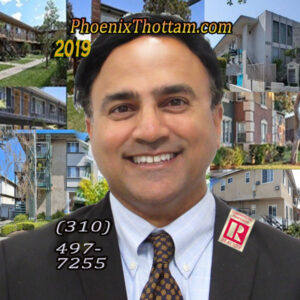 If you own rental property in the City of Los Angeles, it may be subject to the city’s Rent Stabilization Ordinance (RSO). Generally, the RSO applies to rental properties that were first built on or before October 1, 1978 as well as replacement units under LAMC Section 151.28 and is any of the following:
If you own rental property in the City of Los Angeles, it may be subject to the city’s Rent Stabilization Ordinance (RSO). Generally, the RSO applies to rental properties that were first built on or before October 1, 1978 as well as replacement units under LAMC Section 151.28 and is any of the following:
-
Apartment
-
Condominium
-
Townhome
-
Duplex
-
Two or more single family dwelling units on the same parcel
-
Rooms in a hotel, motel, rooming house or boarding house occupied by the same tenant for 30 or more consecutive days
-
Residential unit(s) attached to a commercial building
Mobilehomes and recreational vehicles in mobilehome parks are also covered under the RSO. There are approximately 631,000 units in 118,000 properties throughout the city that fall under this ordinance, including apartments, condos, co-ops, rooming houses, and hotels and motels. Mobilehomes in mobilehome parksare also covered by the RSO.
Generally, the RSO applies to rental properties that were first built on or before October 1, 1978 as well as replacement units under LAMC Section 151.28 and is any of the following: Apartment, Condominium, Townhome, Duplex, Two or more single family dwelling units on the same parcel, Rooms in a hotel, motel, rooming house or boarding house occupied by the same tenant for 30 or more consecutive days, or a residential unit(s) attached to a commercial building.
WHAT THE RSO COVERS
-
Allowable rent increases
-
Registration of rental units
-
Types of evictions requiring payment of tenant relocation assistance
-
RSO disclosure notice for all “Cash for Keys” or Buyout Agreements
WHEN CAN RENT BE INCREASED
Rent increases that do not require HCIDLA approval
-
Rent may be increased to the market rate if tenant:
-
voluntarily moves out;
-
does not pay rent and is evicted;
-
violated the lease agreement and is evicted;
-
is evicted for failure to comply with a Tenant Habitability Plan; or
-
is evicted per a City Attorney order.
-
accepts a Tenant Buyout Agreement
-
-
Rent may be increased once every 12 months by the allowable rent increase percentage. Effective July 1, 2017, the annual allowable rent increase is 3%. This increase may be added to the rent and security deposit. The landlord can add an additional 1% per utility paid by the landlord (gas and/or electricity).
-
If an additional tenant moves into a rental unit: Landlords can increase rent within 60 days of learning about the additional tenant. There is no increase for the first minor dependent child added to the existing rental unit.
-
A $12.25 surcharge may be collected by the landlord as the tenant’s portion of the Registrationfee. Beginning in 2017, this fee will be eligible to be collected in the month of August.
-
A $3.61 monthly surcharge may be collected by the landlord for the Systematic Code Enforcement Program (SCEP) fee.
-
A $3.00 surcharge may be added to the rent for the installation and cost for a hard-wired smoke detector or a combination smoke/carbon monoxide detector.
Rent increases that require HCIDLA approval
-
Capital Improvement Program: Landlords can recover costs for improvements to the rental unit or common areas for items that benefit the tenant and will last at least five years (RAC Reg 210).
-
Primary Renovation Program: Landlords can recover costs for major renovations of building systems or to reduce exposure to hazardous materials (THP Bulletin).
-
Seismic Retrofit Program: Landlords can recover costs for seismic retrofit work mandated by the Soft-Story Ordinance No. 183893.
-
Rehabilitation Program: Landlords can recover costs for work in a unit or common area to comply with an order issued by HCIDLA or other government entities (RAC Reg 250).
-
Just and Reasonable Rent Increase: A landlord can apply for a rent increase when their net operating income adjusted for inflation is not sufficient to cover the property’s operating expenses (RAC Reg 240).
-
Luxury Exemption: A landlord can apply for an exemption from the RSO if they can establish the monthly rent charged on or before May 31, 1978*.
How to Calculate Rent Increases and Surcharges.
REQUIRED REGISTRATION AND POSTED NOTIFICATION OF RSO RENTAL UNITS
-
All Properties with RSO rental units must post notification that the property is subject to the RSO.
-
All units rented or offered for rent must be registered annually with HCIDLA. New property owners have 45 days to register their rental property and if applicable, file Temporary exemptions.
-
Beginning in 2017, in addition to paying the annual registration fee, landlords must also complete the Rent Registry form.
-
Owners are responsible for the payment of annual fees; however, the cost of registration may be shared by landlords and tenants.
-
If the status of a previously exempted unit changes, the property owner must notify the HCIDLA and pay the applicable fees within 10 days.
